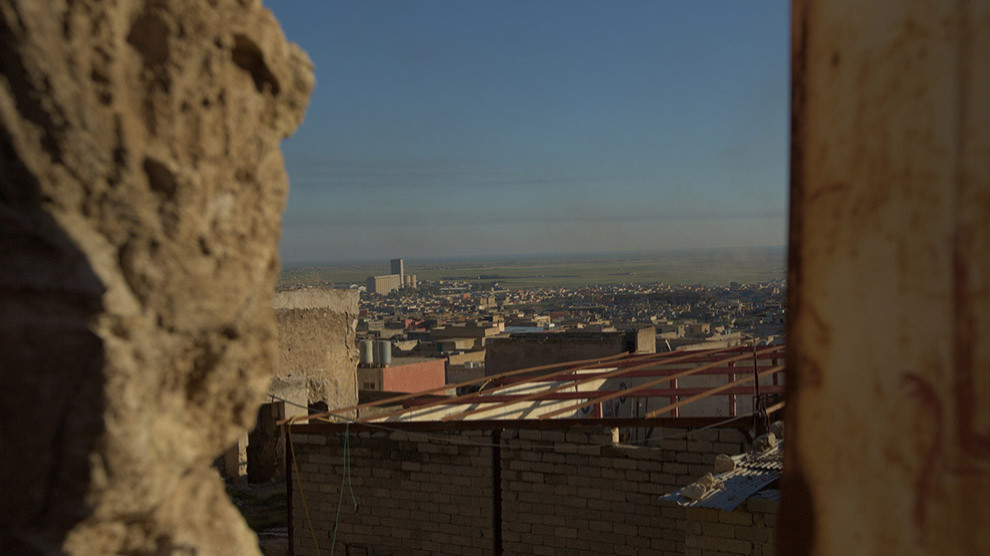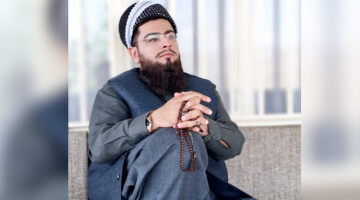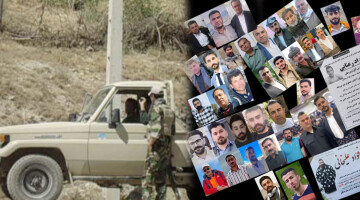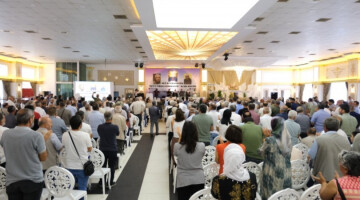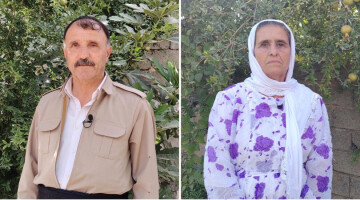On the night of the June 15, on the anniversary of the "Sayfo" - the genocide of the Syriac people in the Ottoman Empire 105 years ago - Turkey committed another act of aggression in violation of international law in the sense of its war of expansion and launched an air and ground invasion in the Kurdish autonomous region of northern Iraq, bombing not only suspected positions in the guerrilla-controlled Medya Defense Zones, but also the UN-protected Maxmur refugee camp southwest of Hewlêr (Erbil) and the Yazidi main settlement area Shengal, including Çilmêra, the highest peak of the Shengal mountain range, where an Yezidi refugee camp is located not far away. Turkish officials reported the bombing of civilian settlement areas as “aimed at neutralizing nests of terror to protect our borders and population". Turkey claims that the attacks are mainly directed against the PKK, but also against other "terrorist groups" in the region. A glance at the map is enough to see, by the way, that neither Shengal nor the Maxmur Camp, which has been subject to a strict embargo at the instigation of the Erdoğan government for just under a year now and is thus cut off from the outside world, is on the border with Turkey.
Return of genocide survivors is made more difficult
"Which so-called terrorist groups are these supposed to be?", Şivan Mûrad from the Yazidi Democracy and Freedom Party (Kurd. Partiya Azadî û Demokrasiyê ya Êzidiyan, PADÊ) wants to know. We spoke with him and his party comrade Elî Brahîm as well as Seydo Elî, member of the Sinûnê People's Council, about the attacks of Turkey on Shengal, which took place only one day after the return of about 150 Yazidis who survived the ISIS attack on Shengal in 2014. The Yazidi community therefore also sees the bombings as part of a Turkish plan to make it more difficult for genocide survivors to return.
"However, Turkey cannot carry out these attacks on its own accord,”says Mûrad and continues: “It is not possible for Turkey to undertake such an undertaking alone. Rather, it is a multilateral political plan approved by international forces, which enables Ankara to penetrate hundreds of kilometres into Iraqi territory. The Yazidi population is intended to be intimidated by the air strikes so that they abandon their core area in the north-west of the country in line with Turkey's neo-Ottoman expansionist ambitions. Sadly, however, the Yazidis are well versed in this kind of "expulsion policy", as they are not only persecuted by Turkey or the ISIS. It is characteristic of all the "rulers" of the region, who have over the centuries committed at least 74 genocides against the Yazidis. We are being punished because we do not want to be driven out. But even if only one of us remains, we will resist the aggression and oppression of the Turkish state and its mercenaries. It is our homeland after all."
Self-defence units are recruited from own population
The PKK does not operate either in Maxmur or in Shengal. Both regions are protected by self-defence units created in 2014 in response to the attacks of the ISIS with the support of the Kurdish guerrilla organisations HPG and YJA-Star, after their defense of the population against the ISIS, and recruited from within the population. Although the jihadist militia was largely defeated militarily in the spring of 2019, the danger posed by the ISIS is far from over; neither in Maxmur, where as recently as February of this year a massive attack attempt by ISIS cells entrenched on Mount Qereçox just behind the refugee camp could only be repulsed thanks to a hasty HPG unit, nor in Shengal, where ISIS attacks are still taking place despite a large-scale joint operation by the Iraqi army, Hashd-al-Shaabi and the Shengal Resistance Units /YJŞ last summer. The last guerrilla units withdrew from Shengal more than two years ago.
Turkey’s attacks continuation of the massacres against Yazidis
"Turkey's attacks on Shengal basically mean nothing more than a continuation of the massacres committed against our people," says Seydo Elî of the Sinûnê autonomous commune. The fact that the Iraqi central government in Baghdad and the KDP-led Kurdish regional government did not condemn Turkey's actions in the strongest possible terms, but instead encouraged the expulsion of the Yazidis by Turkish troops instead of preventing them, is an indictment. "This ignorance is also an indication that the attacks on us are taking place with the approval of both governments," Elî says and adds: “However, one should not forget that the culture of resistance is part of the historical heritage of the Yazidi people. After all, resistance has a tradition with us, which we will of course keep up during the current attacks in order to survive. We will certainly not leave our homeland."
Yazidis should trust in their own power
The local politician of PADÊ, Elî Brahîm, says that the Turkish state is deliberately trying to manipulate the public perception of the situation in Shengal in order to prevent the return of the Yazidis who fled. This is how the Erdoğan regime wants to legitimize its expulsion policy. "Our people are intended to be scared with the attacks, so to speak. But we Yazidis have changed since the Firman on August 3, 2014, and are no longer the old ones. We have established our self-organisation on the basis of a profound ideology and philosophy. That's why we will resist these attacks alongside our defense units YBŞ/YJŞ."
Just as the "enemies of the Kurdish people" have not succeeded in the past in "wiping out" the Kurdish existence, Erdoğan and his "accomplices" will not succeed in breaking the will of the people, says Brahîm and adds: "Our people should trust in their own power. We have the power to defeat the Turkish state and its collaborators.”

